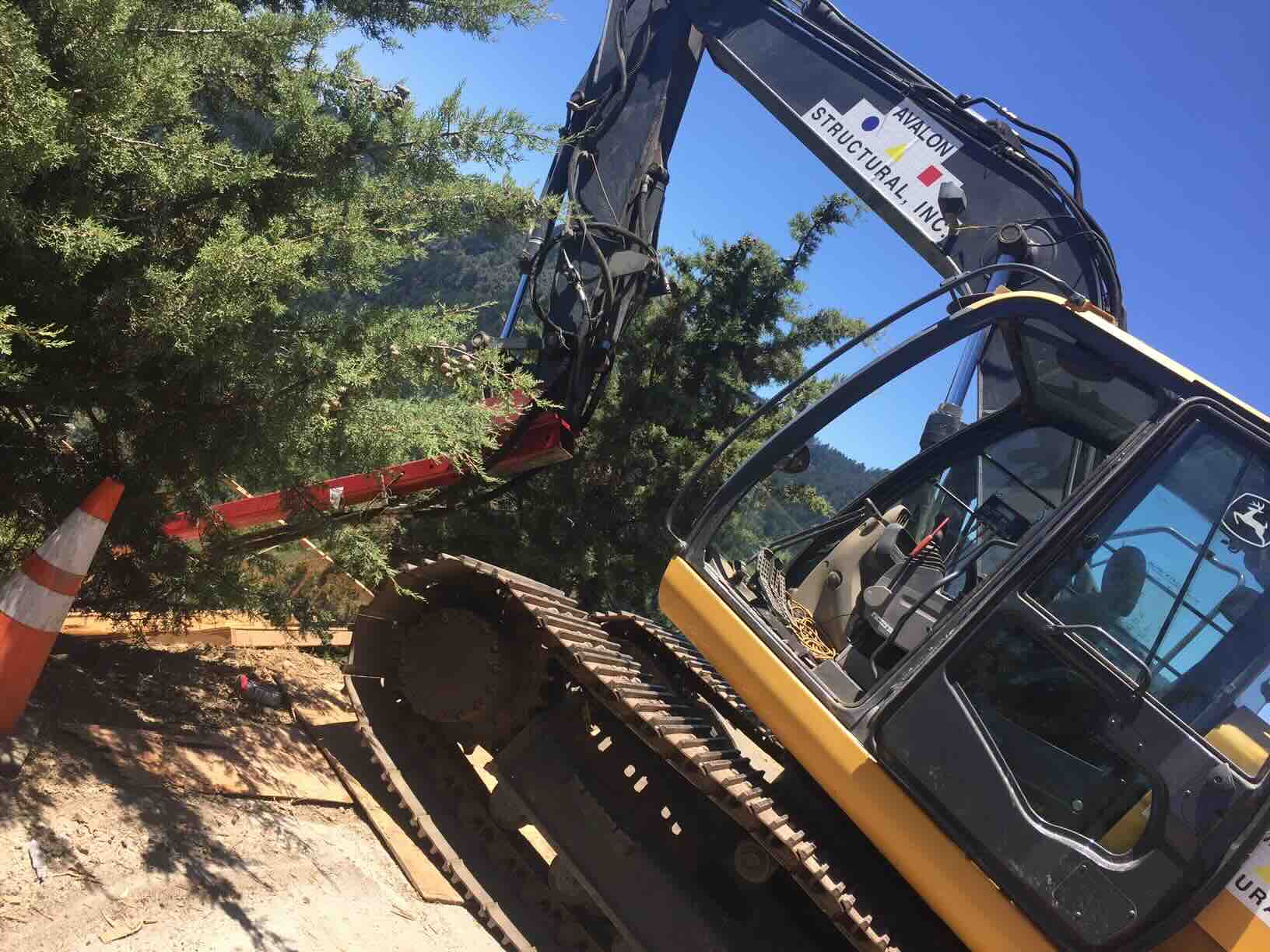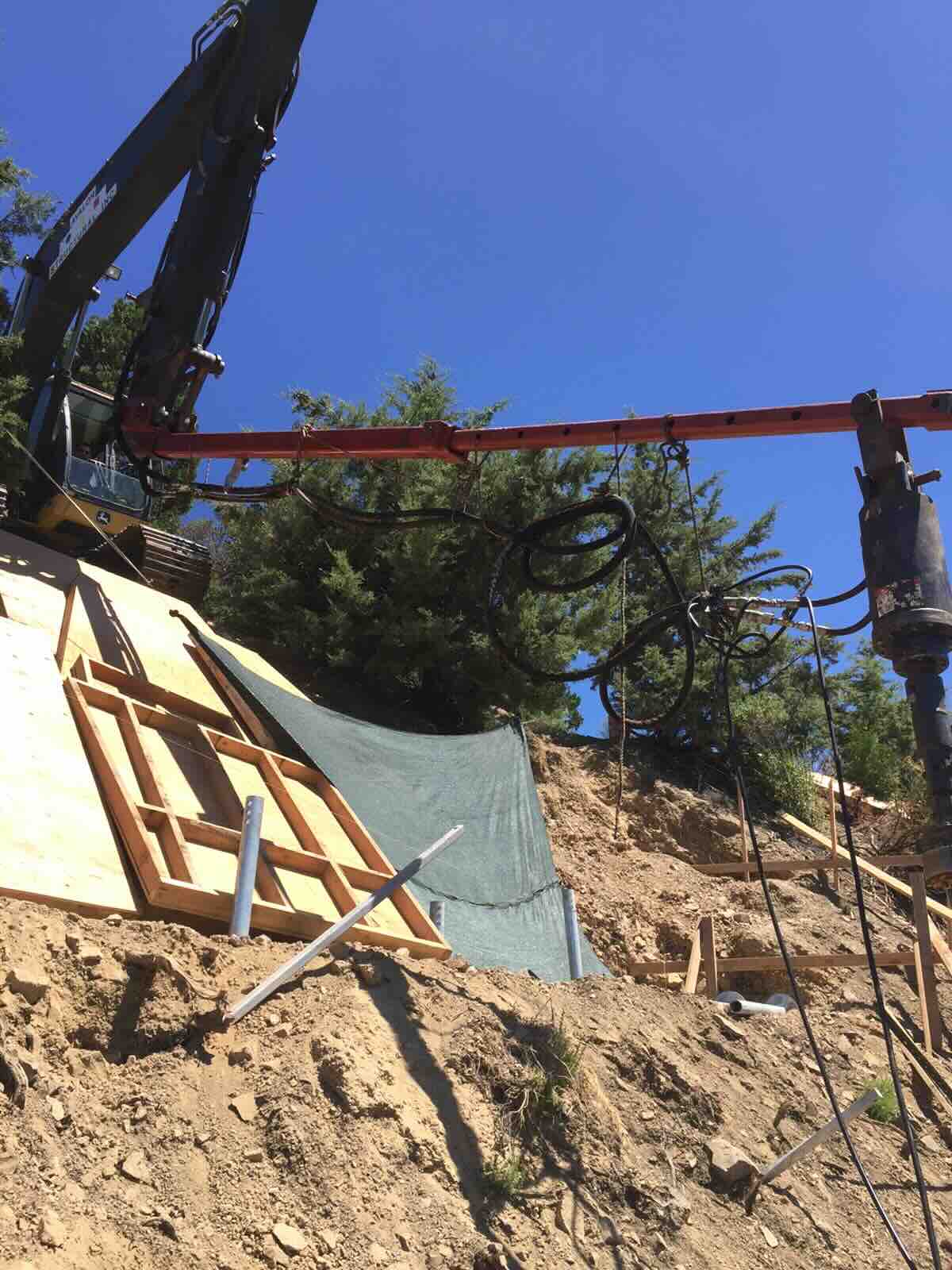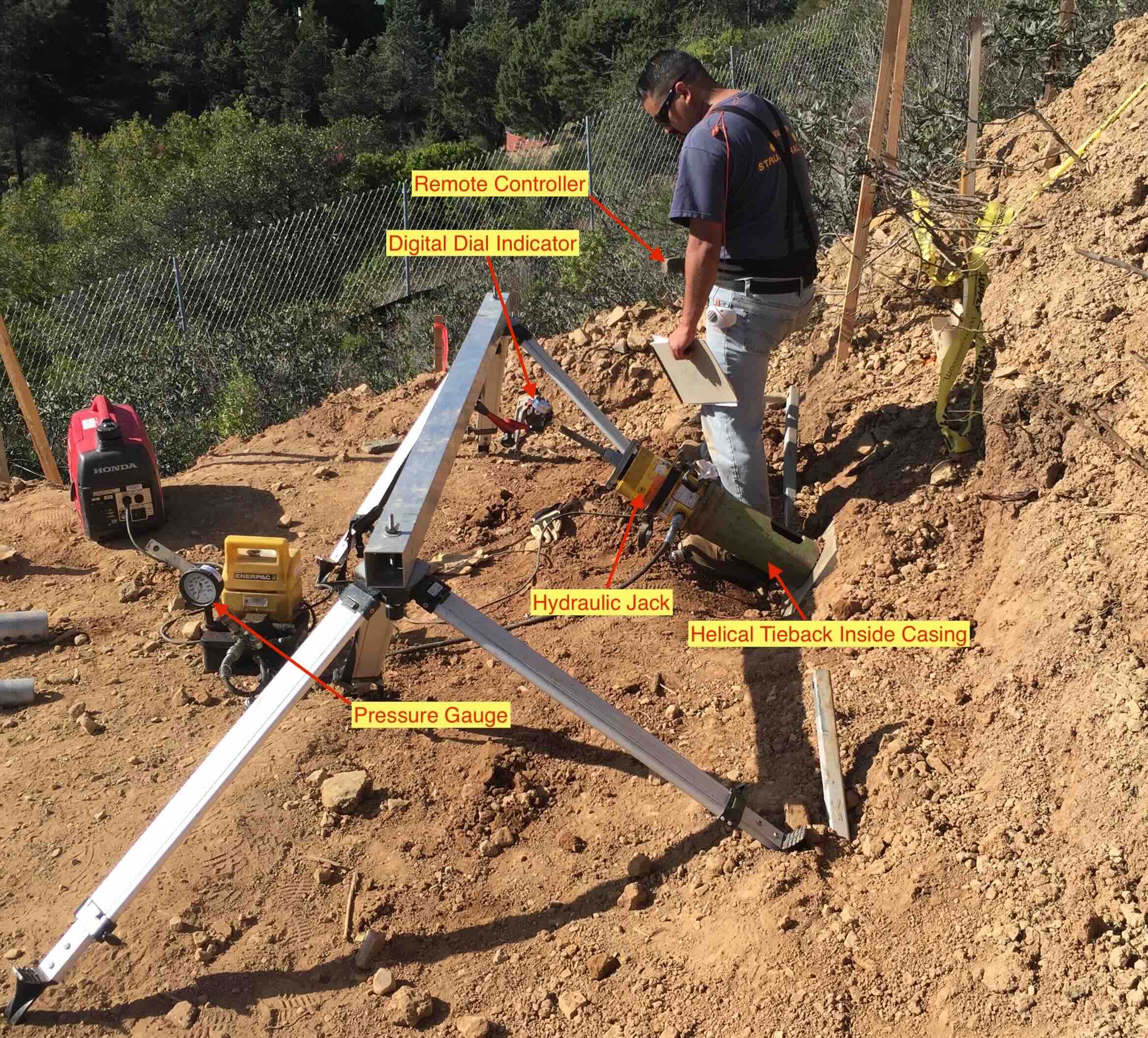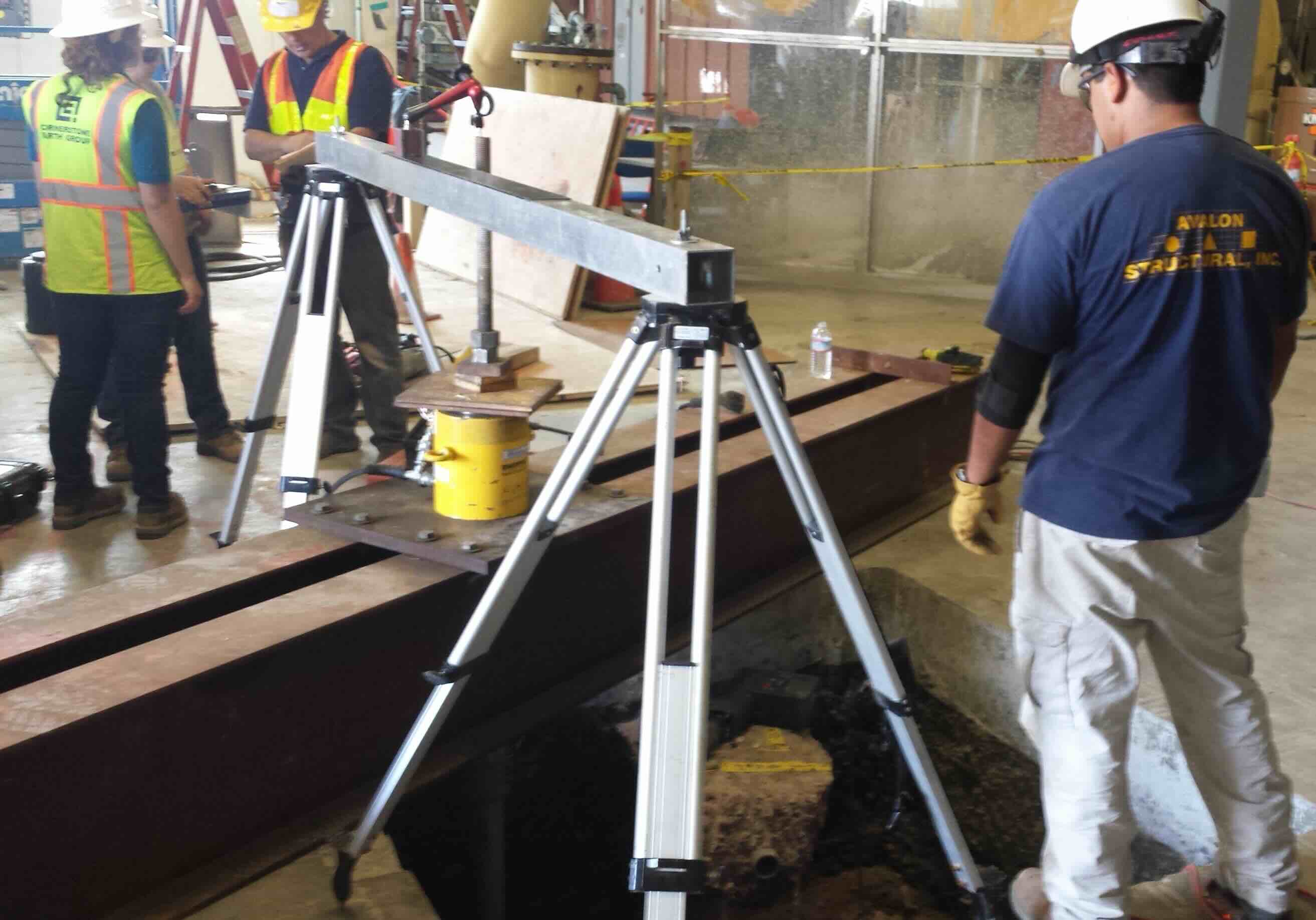|
|
|
|
|
Helical Pile
An underground steel support consisting of a central shaft and one or more attached helix-shaped plates called helices. Helical piles are installed deep into soil by adding extensions to the shaft, for a total length ranging from a few feet to many dozens of feet.
Helical piles have shafts with a diameter from 1.5 inches to 5.5 inches or more with plates generally 6 inches to 12 inches or more. The shaft size, plate size, number of plates, and depth of the pile is finely tuned to the soil and the structure the pile would support.
Note: 'pile' and 'pier' are synonymous and refer to a vertical support designed to withstand primarily compressive loads (i.e. push as opposed to pull), such as the weight of a building; 'anchor' and 'tieback' refer to diagonal or horizontal supports designed to withstand tensile loads (i.e. pull as opposed to push), such as to hold a retaining wall.
synonymous with: helical pier, helix pier, screw pile
compare to: tieback, helical anchor, drilled pier, micro pile, resistive pier
For more information with diagrams like this, please see our glossary entries on items like helical piles.
|

|
These are typical helical piles or anchors for residential deep foundations. The defining characteristic is the helical band(s) which propel them into the earth when turned.
The pile on the left is a 2 7/8" diameter round-shaft helical pile with a single 10" helical plate. Such a pile is generally used to support the vertical loads of a residential foundation.
The pile on the right is a 1 1/2" wide square-shaft helical generally used as an anchor or tieback to support lateral loads, such as for retaining walls or guy-wires.
|

|
This is a 5 1/2" diameter round-shaft helical pier.
Our pier sizes generally range from 1 1/2" square-shaft tiebacks to 5 1/2" round-shaft piles. Where stout columns are needed, we install 5 1/2" helical piers, available in a variety of configurations.
Even larger piers are also available, and we are fully equiped to install them as the need arises.
|

|
For hillside foundations, square-shaft helical piers installed diagonally are the perfect complement to round-shaft helical piers installed vertically.
This system of pile (vertical) supplemented by tieback (diagonal) is often more cost-effective than conventional drilled piers.
|

|
With knowledge and experience, helical piers can be installed in very tight spaces, such as directly through the floor of a closet.
Avalon uses a portable rig connected with a long hose to a hydraulic source to drive the piers deep into the ground.
We have acheived up to a 35,000 lb capacity with one pier in this fashion.
|

|
| Helical members are an excellent tool for road repair.
|

|
| Helical piers create the perfect foundation for an equipment platform because they can be installed and loaded immediately, without the need for concrete to cure.
|

|
| Avalon has installed helical piles, rather than drilled piers, to minimize damage to tree roots as required by the City of Santa Cruz.
|

|
Avalon installed both helical piles and tiebacks at a water treatment plant in northern California.
Engineer: Bob Patterson,
Patterson & Associates
|

|
| With our 40,000 lb. tractor with boom extension we can reach remote locations.
|

|
| The boom extensions allow us to install in places you might have thought impossible.
|

|
| Often engineers will require a verification of helical tieback capacity. When this is called for, we perform a diagonal "pull test" as demostrated in this image.
|

|
| Similarly, here is vertical "pull test" for vertical helical pile capacity. If it moves even a fraction of an inch in the test phase, it will be deemed a failure. Avalon always installs deeply into solid soils to pass these tests with comfort and ease.
|

|
| Avalon has been installing helical piles for decades, as this older picture shows. We continue to evolve and vigilantly keep apace of the latest technologies and equipment in helical installation.
|

|
Avalon Structural, Inc.
181 Ridgeview Drive
Aptos, CA 95003
(831) 479-4389 (office)
info@avalonstructural.com |
Copyright © 2015
Avalon Structural, Inc.
All Rights Reserved
|
CA License 677116
Classifications: B, C-8
Avalon is a general building
contracting firm and
does not employ engineers. |
|
|
|
|